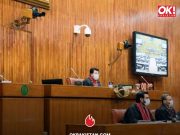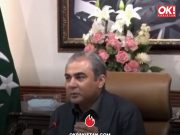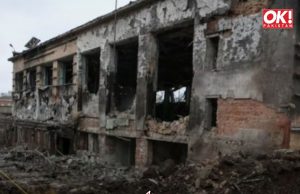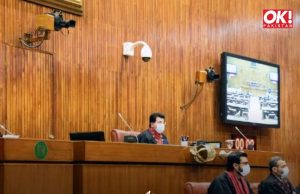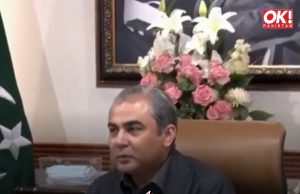ISLAMABAD: The Supreme Court Bar Association (SCBA) has renewed its call for Umar Ata Bandial, the Chief Justice of Pakistan, to direct the Election Commission of Pakistan (ECP) to hold general elections within 90 days of the dissolution of the National Assembly on 9 August.
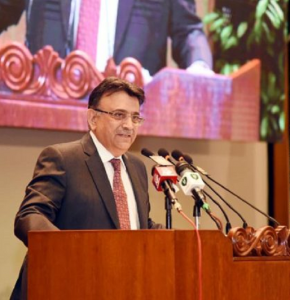
Abid Zuberi, secretary Muqtedir Akhtar Shabbir, and SCBA members Shakeelur Rehman and Bushra Qamar submitted the petition on behalf of the Professional Lawyers Group, a subset of the legal profession commonly identified with backing the PTI (Pakistan Tehreek-e-Insaf).
The same lawyers who support CJP Bandial’s call for elections in Punjab and Khyber-Pakhtunkhwa are also calling for these elections.
This is Zuberi’s first time petitioning the Supreme Court under the Constitution. When an audio leaks commission was established and civilians were tried in military courts, he fought back. Also, he is now fighting against the Supreme Court Practise and Procedure Act 2023, which would give the chief justice more power over how judges’ benches are formed and how cases are handled.
U.S. welcomes opportunity to engage with Kakar and his team as prime minister
The current legal move by Zuberi contests the CCI’s approval of the digital census announcement on August 5.
As the Election Commission of Pakistan (ECP) has not ruled out holding general elections within the allotted 90 days, and as the commission still has roughly 30 days to declare the date for holding general elections, a senior lawyer has argued that this plea is premature.
Election supervisors reportedly failed to reach a consensus at a meeting to discuss whether or not to conduct delimitation in light of the recent digital census.
The ECP may consult with seasoned solicitors regarding the impact of the CCI’s notification on the next census.
During Umar Ata Bandial’s stint as CJP of Pakistan, there has been a noticeable reluctance among state institutions, including the ECP, to turn to the Supreme Court for direction. Many people are placing their hopes in Chief Justice-designate Qazi Faez Isa to decide the outcome of the 2018 general elections.
The current petition could be submitted before CJP Bandial in an effort to get greater societal respect in advance of his retirement, as suggested by a senior lawyer in a prominent position who is known to have ties inside powerful circles. It is customary for each Chief Justice to make a lasting contribution to the cause of democracy, which is a cornerstone of our government.
Every chief justice has a history of issuing a seminal decision near the end of his term. The attorney insists, however, that much harm has already been done in the sake of leaving a judicial “legacy.”
Without including all of the judges, he said, it would be a mistake to consider this petition.
You Can Read More About How the PML-N Got a “Guarantee” on Nawaz’s Return Here
During its time in office, the previous government of the Pakistan Democratic Movement (PDM) had the backing of another faction within the legal community known as the Independent Lawyers faction.
Whether or not the Independent Lawyers Group decides to back the caretaker government and security establishment remains to be seen. This faction, which had previously sided with the government on a variety of issues, lost the election for SCBA president.
Aspects of Law
After the CCI decided to alter the Election Act 2017 earlier this year, Hafiz Ahsaan Ahmad Khokhar, an advocate, stated that the ECP now has the ability and prerogative to declare the date for the general election.
According to him, the process of consultation between the ECP and the president for the release of polling schedule has been waived off, as stated in Section 57(1) of the Elections Act, as amended.
He also made it clear that Article 51(5) of the Constitution, which mandates that seats in the National Assembly be distributed to each province and the federal capital based on the population according to the most recent officially published census, is dependent on Article 224 of the Constitution, which specifies whether elections must be held within 60 or 90 days.
The CCI, which consists of all chief ministers and is led by the prime minister, took the decision on behalf of the outgoing administration.
The subject of the census was included in the Federal Legislative List (Part-II) as a result of the Eighteenth Constitutional Amendment’s passage in April 2010, which required the CCI to evaluate and make decisions on major issues relevant to the federation.
According to the constitutional scholar, the procedure initiated by Article 51(5) of the Constitution, which should be finalised in 120 days, must be completed before the provision for initiating the election schedule under Article 224 of the Constitution can go into force.
This is due to the fact that the conclusion of the limiting process for constituencies under Article 51(5) of the Constitution is necessary for the provision of Article 224 of the Constitution to take effect.
The CCI will consist of the Prime Minister as its Chairman, the Provincial Premiers, and three other members of the Cabinet.
Legally speaking, as Khokhar explains it, the president is the one who chooses who sits on the CCI.
The constitutional expert argues that there is no prohibition in Article 153 of the Constitution that caretaker chief ministers cannot participate in the proceedings of the CCI, so no decision made by the council can be challenged on the grounds that it should have been made by the elected chief ministers or prime minister.
He went on to argue that it would be extremely challenging for the petitioners to cross the bridge of maintainability of public interest litigation under Article 184 of the Constitution before the Supreme Court in light of the clear provisions of Articles 51(5), 153 read with Article 224 of the Constitution.
He also said that the higher courts wouldn’t bother looking at cases when the Constitution specifies a prerequisite provision before proceeding.
In this case, he cited Article 51(50) of the Constitution, which states that the number of seats in the National Assembly for each province and the federal capital shall be determined by the population counted in the most recent census that was made public by the federal government.
In a related story, Imran Khan was arrested over a cypher that was published online.
Since the previous federal government announced the new census following the unanimous decision of the CCI prior to the dissolution of the National Assembly, the attorney argued that Article 51 (50) of the Constitution has overriding effect over Article 224 of the Constitution and that the ECP could not be legally required to announce the date for holding the general election within 90 days until the required process under Article 51(5) is completed.
He argues that the election supervisor can only be told to “complete the process of constituency limitation at the earliest pursuant to Article 51(5) of the Constitution and then to announce the election schedule pursuant to Article 224 of the Constitution read in conjunction with the provisions section 56 and 57 of the Election Act 2017.”
The petitioners represent a subset of lawyers who hold the view that the CCI’s judgement was motivated by mala fide attempts to postpone the elections.
In the same vein, they argued that the Supreme Court should step in since the Constitution mandates that elections be held within 90 days.




